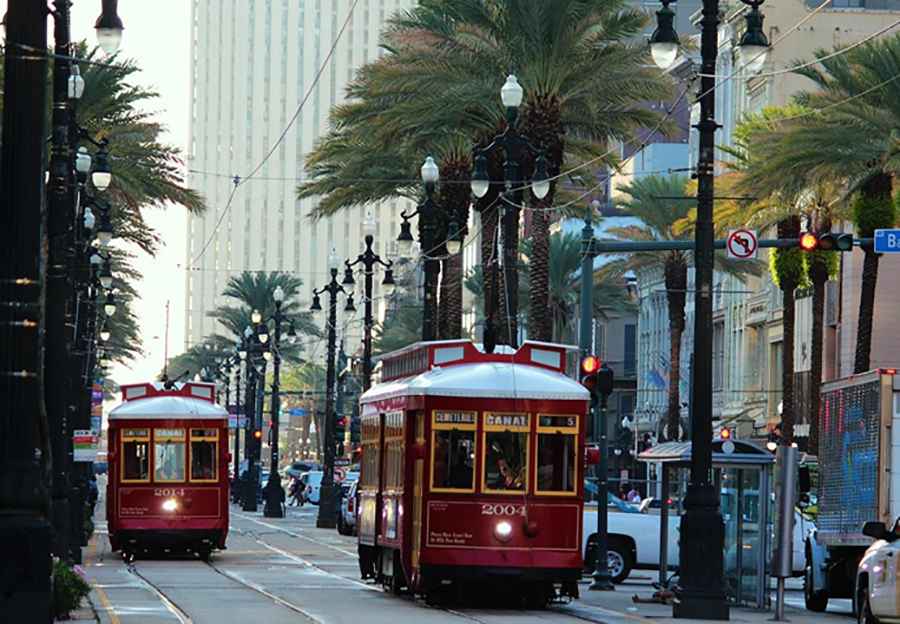Navigating New Orleans’ Most Dangerous Roads: What to Do After a Car Accident
New Orleans, a city celebrated for its unique culture and historical architecture, also has a less celebrated reputation for challenging driving conditions. Navigating its mix of narrow, historic streets and bustling modern highways requires extra caution. Unfortunately, car accidents are a reality—one happens every 13 minutes in the US—and knowing how to respond can be crucial for your safety and legal protection. In the aftermath of a crash, consulting car accident lawyers can make a significant difference, ensuring your rights are protected and helping you pursue the compensation you deserve.

High-Risk Zones in New Orleans
Statistically, some areas within New Orleans experience a higher incidence of traffic accidents.
- South Claiborne Avenue and Gravier Street: This intersection is complicated by the I-10 overpass, which creates issues with visibility and lighting. The complex design of the intersection itself also contributes to the elevated accident rate.
- Canal Street and North Dorgenois Street: The expansive layout of this intersection, combined with the high volume of traffic it handles, results in numerous collisions.
- Charles Avenue and Napoleon Avenue: The presence of streetcar tracks along St. Charles Avenue creates an additional hazard, demanding extra vigilance from drivers, especially those making turns.
The human cost of these accidents is significant. Between 2016 and 2020, 233 lives were lost, and 1364 people were injured in collisions on New Orleans roads. These figures underscore the need for both defensive driving practices and a clear understanding of post-accident procedures.
Immediate Steps Following an Accident
If you are involved in a car accident in New Orleans, prioritize the following actions:
- Prioritize Safety: Your immediate concern is the safety of yourself and others. If it's possible and safe to do so, move your vehicle out of the direct path of traffic. Activate your hazard lights to alert other drivers. Check for injuries among all individuals involved.
- Contact Emergency Services: Dial 911 to report the accident. This ensures that law enforcement officers will be dispatched to document the scene and that medical personnel will be available if needed. A police report is often a critical piece of documentation for insurance claims.
- Exchange Driver Information: Share contact and insurance details with any other drivers who were involved.
- Document the Accident: If it's safe, take photographs of the accident scene. Capture images of the damage to all vehicles, the positioning of the cars, any relevant traffic signs or signals, and any visible injuries.
- Obtain Witness Information: If there are any witnesses to the accident, collect their names and contact information. Their accounts can be valuable in determining the sequence of events. For example, they may have seen another driver using their cell phone. Cell phone use while driving can increase the chances of an accident by 400%.
Safeguarding Your Legal Rights After a Car Accident
According to Scott Mansfield, one of the most recognized New Orleans car accident lawyers, there are important steps you need to take after addressing the immediate situation to protect your legal rights after a car accident.
- Medical Evaluation: Seek medical attention, even if you don't feel immediate pain. A medical examination establishes a record that connects your injuries to the accident.
- Inform Your Insurer: Promptly report the accident to your insurance company. Provide them with the factual details of the incident, but do not admit fault.
- Avoid Admitting Fault: Be mindful of your words both at the accident scene and in conversations with insurance adjusters. Refrain from making statements that could be interpreted as accepting responsibility.
- Maintain Comprehensive Records: Create a file to store all documents related to the accident. This should include the police report, medical records, repair estimates, and all correspondence with insurance companies.
- Legal Consultation: It's wise to consult with a car accident lawyer, particularly if injuries or substantial property damage are involved.
Driving in New Orleans demands a heightened level of awareness and caution. Being familiar with the city's most accident-prone areas and understanding the necessary steps to take after a collision can help protect your physical and legal well-being.
Pic: https://pixabay.com/photos/new-orleans-tram-america-usa-4008968/